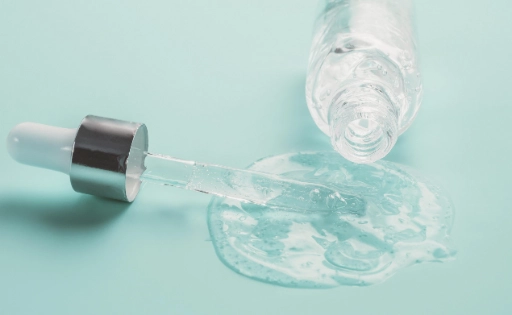1,3-propanediol is a chemical widely used in many industries. It is a colorless, odorless liquid that is often used as a solvent, humectant, emulsifier and thickener in food, cosmetics, pharmaceuticals and industrial products. However, the question of whether 1,3-propanediol is good or bad is still controversial, especially in some special cases. So, is 1,3-propanediol good or bad for our health?
Common uses of 1,3-propanediol
The wide application of 1,3-propanediol makes it an indispensable ingredient in many products. Here are some of its main uses:
Food industry: In food production, 1,3-propanediol is used in various foods as a humectant, solvent and preservative. It can improve the stability of food and extend the shelf life. It is commonly found in soft candies, ice cream, beverages and condiments.
Cosmetics and Personal Care: propanediol is used as a moisturizer, solvent, and emulsifier in cosmetics such as skin care products, shampoos, and shower gels. It helps maintain skin hydration and keeps the skin soft and smooth.
Pharmaceutical Industry: In pharmaceuticals, 1,3-propanediol is often used as a solvent and stabilizer to help dissolve drug ingredients and improve the bioavailability of drugs, especially in liquid drugs and injections.
Industrial Applications: In the industrial field, 1,3-propanediol is used as an antifreeze, solvent, lubricant, etc. It plays an important role in the production of antifreeze and some chemical products.
Potential Benefits of 1,3-propanediol
1. Low toxicity
1,3-propanediol is considered to be a low-toxic substance. According to many studies and international safety standards, 1,3-propanediol does not cause significant harm to the human body when used in moderation. In food, cosmetics, and medicines, the concentration used is strictly controlled within a safe range.
2. Moisturizing effect
1,3-propanediol has strong hygroscopicity and can effectively retain moisture and prevent skin dryness. Therefore, it is widely used in skin care products and cosmetics, especially products that need to remain moist, such as face creams, lip balms, etc.
3. Environmental friendliness
Compared with some other chemicals, 1,3-propanediol has less impact on the environment. It is a more environmentally friendly substance that can be degraded in a short time, reducing the burden on the ecosystem.
4. Versatility
PDO is widely used in multiple industries, including food, cosmetics, pharmaceuticals and industry, and can provide product stability and enhance the use effect.
Potential risks of PDO
Although 1,3-propanediol is generally considered safe, in some cases, excessive use or special populations may face some health risks.
1. Allergic reaction
Individual consumers may have an allergic reaction to 1,3-propanediol. In particular, symptoms such as redness, itching or allergic dermatitis may occur when it comes into contact with the skin. People with allergies should avoid products containing 1,3-propanediol.
2. Misuse or overdose
If 1,3-propanediol is misused or accidentally ingested in excess, it may cause some health problems. Although this situation is relatively rare, it is still necessary to pay attention to correct use and dosage control.
How to use 1,3-propanediol safely?
To ensure the safe use of 1,3-propanediol, the following are some key safety recommendations:
Follow the instructions for use: When using 1,3-propanediol-related products, be sure to follow the product instructions and relevant regulations to avoid overdose.
Pay attention to sensitive people: For people with sensitive skin or a history of allergies, products containing 1,3-propanediol should be avoided, especially in skin care products.
Choose trustworthy products: When purchasing food, cosmetics or medicines containing 1,3-propanediol, make sure they are from reputable manufacturers and check the ingredients and usage concentration of the product.
Maintain appropriate contact time and dosage: Avoid long-term exposure to high concentrations of 1,3-propanediol, especially in industrial production environments. Wearing proper protective equipment can reduce potential health risks.
Conclusion
Overall, propanediol is a widely used and relatively safe chemical that plays an important role in food, cosmetics, pharmaceuticals and industrial products. For most people, 1,3-propanediol is safe at compliant concentrations and can provide stability, moisturizing and a good use experience for products. However, individuals who overuse or are allergic to it may face health risks. Therefore, reasonable use, choosing the right product and following the instructions for use are the key to ensure safety.
Contact Us
For more information about AHB PDO Solubilizerproducts or purchase consultation, please contact us:
Email: contact@ehuaheng.com
AHB is committed to providing customers with high-performance propanediol products and ensuring that they meet international safety standards to help your products achieve the best results.












